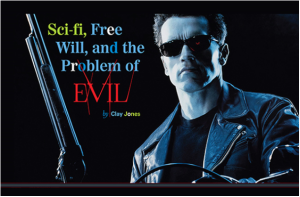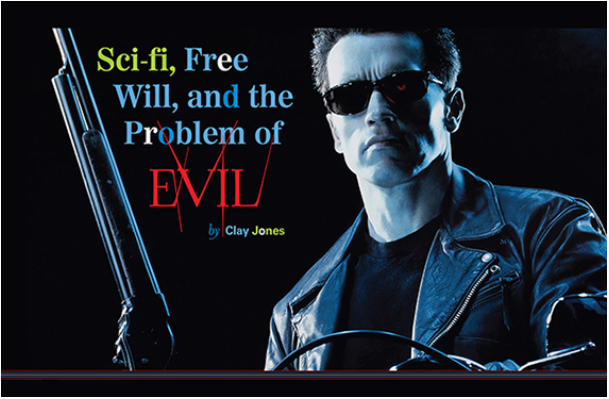In teaching every semester on why God allows evil, I’ve learned that many Christians do not understand the nature or value of free will. Indeed, many years ago I too struggled with what free will is all about, but found an unlikely ally in science fiction. Sci-fi books, movies, and television programs frequently feature free will as a major theme and thus help illumine this abstract topic.
 Since many more people see science fiction on big and small screens than read sci-fi books, I will use only examples from movies and television where these themes are staples of the sci-fi genre. Most of these shows did very well at the box office or in TV ratings, and were very well received by critics; many also spawned popular video games.
Since many more people see science fiction on big and small screens than read sci-fi books, I will use only examples from movies and television where these themes are staples of the sci-fi genre. Most of these shows did very well at the box office or in TV ratings, and were very well received by critics; many also spawned popular video games.
Movies and television shows develop this subject partially because free-will science fiction resonates with themes much larger than most people imagine: the very nature of humankind, and, indeed, why God allows evil.
ALIENS THREATEN HUMAN FREE WILL
Some movies depict alien beings that intend to take away human free will, with most of the movie being about thwarting their attempt. For example, we find this plot in the 1956 classic Invasion of the Body Snatchers, and its three remakes. In the original, mysterious pods arrive from outer space, and while people sleep, an organism replicates them as emotionless “pod people.” Although physically identical, pod people no longer possess free will, but are part of a collective. The movie largely consists of a couple doing everything possible to avoid being infected. One pod person tells a terrified hostage, “Love, desire, ambition, faith— without them life’s so easy.” But the heroine protests, “I don’t want a world without love or grief or beauty.” The heroine believed that a world that included grief was preferable over a world where no one ever felt anything at all.
Similarly, aliens called the “Borg” in certain episodes of the Star Trek franchise also attempt to turn people into obedient drones. The Borg’s byline is, “Resistance is futile: you will be assimilated.” The Enterprise crew does everything in its power to resist and destroy the Borg because no one wants to lose their free will.
In science fiction, free will is always portrayed as extremely valuable and essential to being human. In fact, sci-fi always glorifies the fight to preserve free will at any cost.
HUMAN CREATIONS GAIN FREE WILL
Plotlines involving human creations gaining free will go in one of two directions. In one plotline, the creation rebels against the creator to rule humans.
The Terminator (1984) made Arnold Schwarzenegger a household name and represents another type of free-will plotline: humans create a computer that gains free will and turns on its creators. In The Terminator’s dystopian future, the U. S. military built a defense system called Skynet that, just a few weeks after being brought online, became self-aware. Click here to continue reading this article in the Christian Research Journal.

I mentioned the Matrix, Steve. You need to click the link to see the rest of the article.
Excellent point (and good movie reviews as well). To the perennial question of “Why didn’t God make us so we could not sin?” these sci-fi flicks remind us of the value of free will and why we do not really wish to be assimilated.
Hi I’ve just watched you on Alisa Childers, you mentioned a book on the sins of the cananites, how do I get it ? Thank you
Hi Louise, I’m sorry, but it has been delayed.